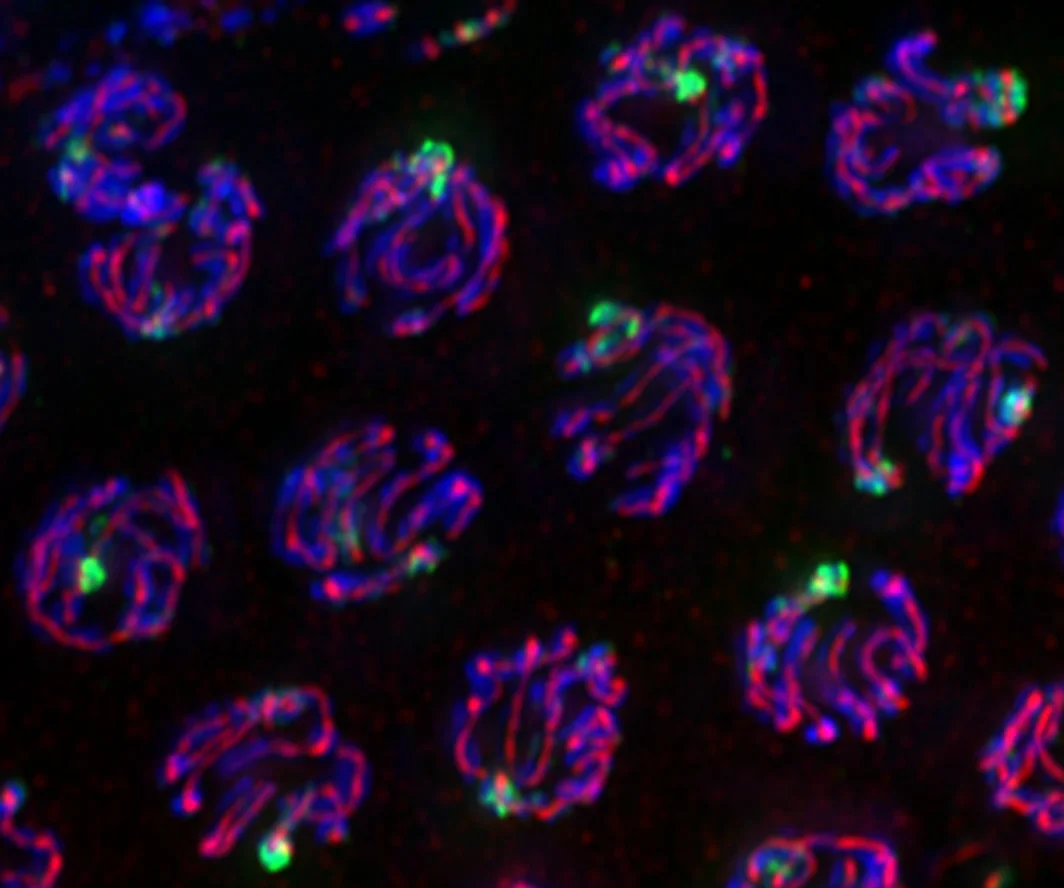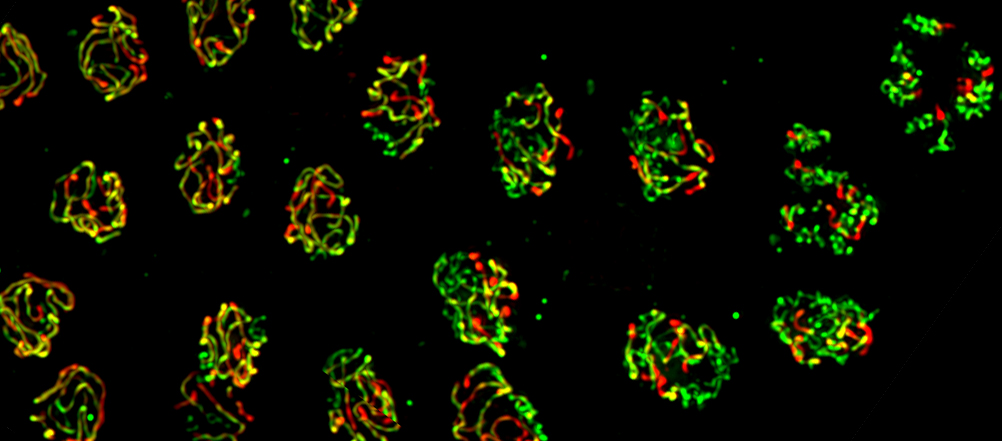How do cells ensure that the correct number of chromosomes is maintained with every cell division? Having an incorrect number of chromosomes, also called aneuploidy, is associated with cancer, birth defects, miscarriages and infertility, underscoring the importance of this question to human health. We combine genetic and biochemical approaches with high-resolution microscopy and cytological techniques in the nematode worm C. elegans to better understand how chromosomes are partitioned correctly during both sexual reproduction (meiosis) and development (mitosis).





